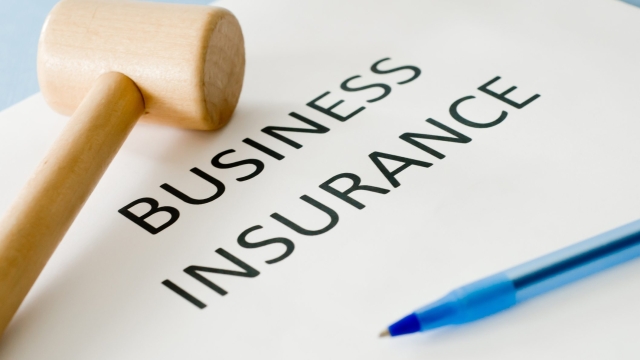Running a successful business involves more than just having a great product or service. It also requires careful planning and consideration for the unforeseen events that can potentially disrupt your operations. One crucial aspect of safeguarding your business is having the right insurance coverage in place. Insurance provides financial protection against risks and liabilities, ensuring that your hard-earned assets are safeguarded in the event of an unexpected disaster or loss.
When it comes to protecting your business, commercial property insurance is a fundamental component of your overall insurance strategy. This type of insurance specifically covers your physical assets, such as buildings, equipment, inventory, and furniture, from various perils and hazards. Whether you own or lease the property, having commercial property insurance in place can help mitigate potential financial losses and ensure that your business can quickly recover and get back on track in the face of adversity.
Not only does commercial property insurance safeguard your physical assets, but it also offers protection against liabilities associated with your business property. For instance, if someone were to sustain an injury on your premises and hold you responsible, commercial property insurance can help cover the costs of legal fees and medical expenses. This coverage can provide you with invaluable peace of mind as you navigate the day-to-day operations of your business.
In the following sections, we will delve into the intricacies of commercial property insurance, exploring its different types of coverage, factors influencing premiums, and crucial considerations when selecting an insurance provider. By understanding the ins and outs of commercial property insurance, you can make informed decisions and ensure that your business is adequately protected against potential risks and losses. So let’s dive into the world of commercial property insurance and equip ourselves with the knowledge and tools needed to safeguard our business assets.
Understanding Commercial Property Insurance

Commercial property insurance is an essential aspect of protecting your business assets. Whether you own a small retail store or a large manufacturing facility, having the right insurance coverage can give you peace of mind and financial security.
Business insurance, specifically commercial property insurance, provides coverage for physical assets such as buildings, equipment, inventory, and furniture. This type of insurance safeguards your business against risks like fire, theft, vandalism, and natural disasters. Without proper insurance coverage, any damage or loss to your property could have a devastating impact on your business operations.
When selecting commercial property insurance, it’s important to evaluate the value of your assets and determine the level of coverage that suits your needs. This may involve assessing the replacement cost of your property and considering any additional coverage options such as business interruption insurance or equipment breakdown insurance.
General Liability Insurance Florida
Remember, commercial property insurance is not just about protecting the physical assets of your business; it also plays a critical role in minimizing the financial impact of unforeseen events. By securing the right insurance coverage, you can ensure that your business is well-prepared and can quickly recover from any property-related losses or damages.
Determining Coverage Needs
In order to adequately protect your business assets, it is essential to determine your coverage needs for commercial property insurance. This involves assessing the value and potential risks associated with your property, as well as understanding the specific requirements of your business.
Firstly, it is important to identify the value of your business assets such as buildings, equipment, inventory, and furnishings. Conducting a thorough inventory and valuation will help you determine the appropriate coverage amount needed to protect these assets in the event of damage or loss.
Secondly, consider the potential risks that your business property may face. These can include natural disasters such as fires, floods, or earthquakes, as well as man-made risks like theft, vandalism, or accidental damage. Assessing these risks will enable you to choose the right coverage options that address your specific vulnerabilities.
Lastly, familiarize yourself with any requirements or regulations imposed by your industry or local authorities. Some businesses may have specific insurance requirements in order to comply with legal or contractual obligations. Understanding these obligations will help you ensure that your coverage meets all necessary standards.
By taking these factors into consideration, you can determine the appropriate coverage needs for your business assets. Doing so will provide you with peace of mind knowing that your property is adequately protected against unforeseen events or circumstances.
Choosing the Right Insurance Provider
When it comes to insuring your business assets, selecting the right insurance provider is crucial. Your choice of insurer can greatly impact the protection and coverage you receive for your commercial property. Here are some factors to consider when choosing an insurance provider:
-
Reputation and Experience: Look for an insurance provider with a strong reputation and extensive experience in the industry. Research their track record and find out if they have a history of delivering reliable and efficient services to their customers.
-
Financial Stability: It’s important to select an insurance company that is financially stable. This ensures that they have the necessary resources to honor their commitments and pay out claims when needed. Review their financial ratings and assess their overall financial strength.
-
Tailored Coverage Options: Different businesses have different insurance needs. Consider an insurance provider that offers customized coverage options to suit the specific requirements of your commercial property. This can help ensure that you get the right level of protection without paying for unnecessary coverage.
Remember, choosing the right insurance provider is a decision that should be made carefully. Take the time to research and compare different options to make an informed choice that aligns with your business goals and objectives.





